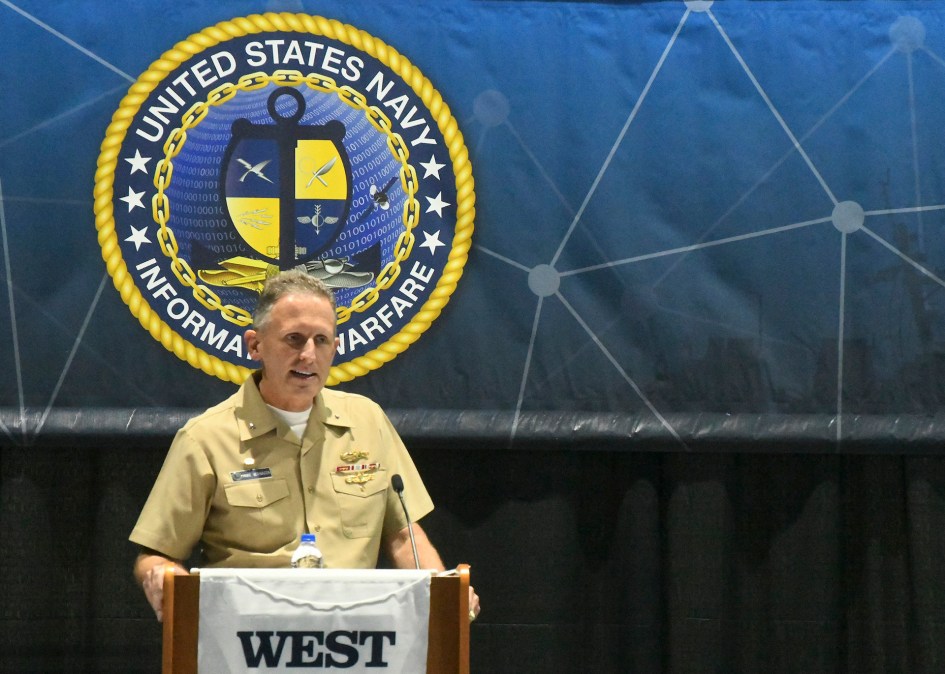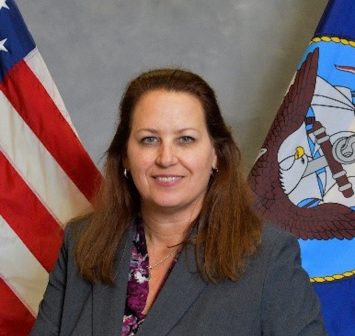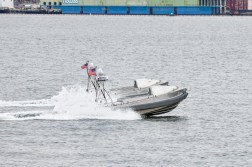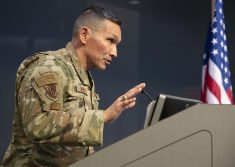Navy to get new information boss

Rear Adm. Michael Vernazza was nominated by President Joe Biden to be the next commander of Naval Information Forces, the Pentagon announced Thursday.
Vernazza, who is set to pin on his third star with the promotion, is currently serving as the commander of Fleet Information Warfare Command Pacific/Information Warfare Task Force Pacific. That organization was created as a direct request from the Pacific Fleet commander to help coordinate effects across the vast information space, including through interservice and allied partners.
As the so-called I boss, Vernazza would be responsible for manning, training and equipping information warfare forces.
If confirmed by the Senate, he will take over for Vice Adm. Kelly Aeschbach, who has held the position since 2021.
Aeschbach has noted the key role that information and IW will play in the future.
“My bias is that information warfare is the integrator in all aspects of Navy warfighting. We do warfighting on our own. And then no one else in any warfighting domain can do anything without at least a piece or a part of what we provide,” she said at the annual Sea-Air-Space conference in April. “We are the integrating fabric. If you’ve seen Adm. Paparo’s plan in the Pacific for how he intends to do the fight tonight, information-related capabilities underpin that entire plan,” she said, referring to Adm. Samuel Paparo, who took the helm as commander of U.S. Indo-Pacific Command last week.
Aeschbach has maintained that the demand for information warfare and IW professionals is ever-increasing and officials are struggling to keep up with the demand.
Information warfare forces played a role in combating one-way attack drones launched from Yemen by the Houthis, a group backed by Iran, in the Red Sea.
For her part, Aeschbach has played a big role in the advance of Navy IW, namely, its cyber enterprise. Under her leadership — and at the direction of Congress — the Navy created specific work roles for digital warriors that conduct operations on behalf of U.S. Cyber Command.
In the decade prior, the Navy had not created cyber-specific work roles, the only service not to do so. Now it has a role for officers, or designator in Navy parlance, and for enlisted, a rating.
Officials have noted that the readiness of this cyber force, one of the lowest among the services, has already seen improvements since the designator and rating were established.
Additionally, following the decision years ago to make information warfare officers permanent fixtures on carrier strike groups — an O-6, captain-level command — the Navy has recently begun piloting this concept with its submarine force.
Aeschbach has called these efforts a resounding success, stating the aim is to help unburden the submarine force from performing many of the IW roles itself — such as communications, battlespace awareness and information for targeting — which had been taking away from its primary mission.
Most recently, an East Coast-based pilot determined the need to make a permanent investment in a cryptologic technician aboard the vessels to provide expertise in electronic and signals intelligence, Aeschbach said during an interview broadcast by Defense One in May. They are working on how to identify resources to underpin permanent billets while continuing to pilot, she said, adding that officials plan to conduct two more pilots on the East Coast.
On the West Coast and for the Pacific, they are going to try something different, she said: putting an information warfare team at the operations center to see if it’s more impactful than being aboard the submarine. As part of that initial pilot, she said they had intelligence specialists and received mixed reviews on the impact of them being underway.
“We’re going to continue to pilot a little bit and help inform what the ultimate right configuration is,” Aeschbach said.






